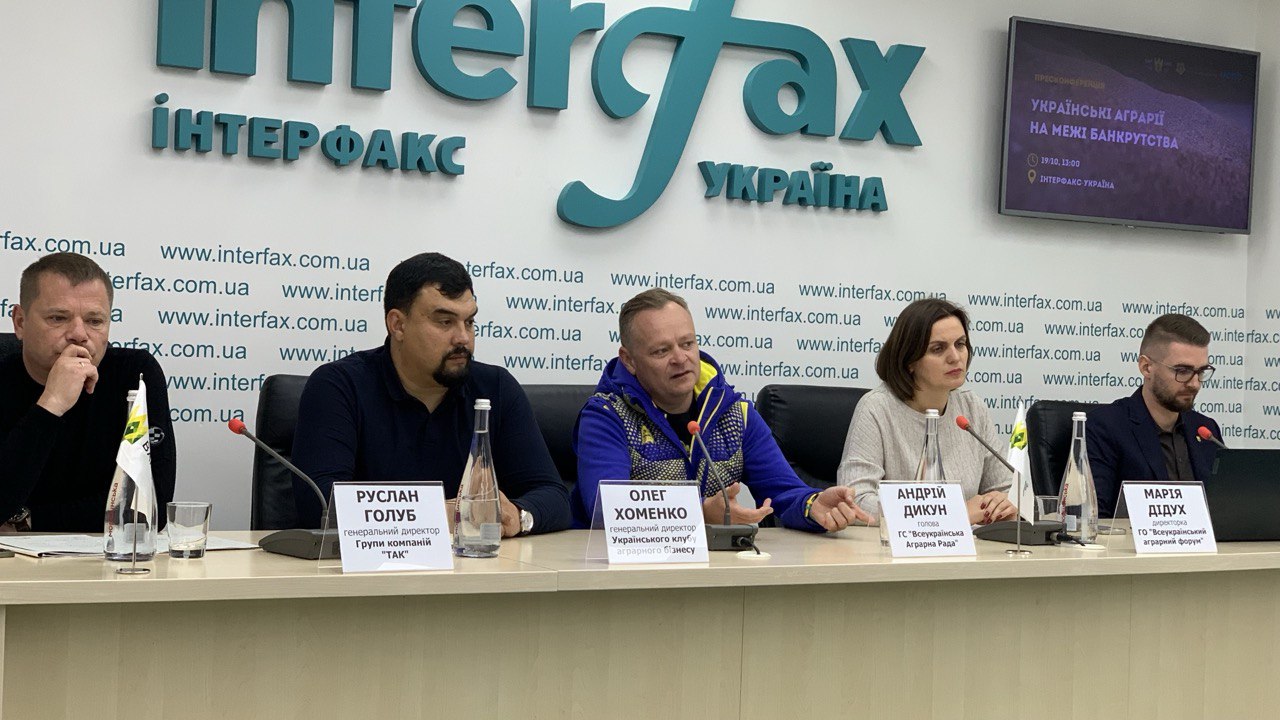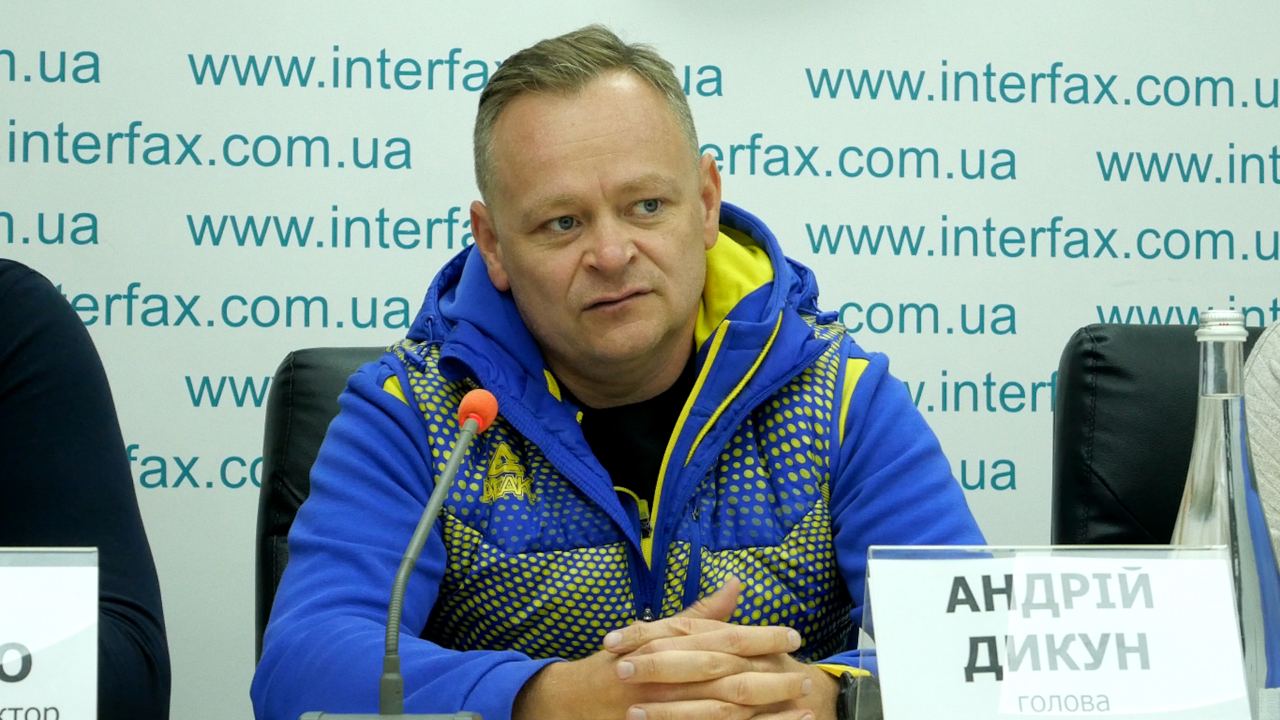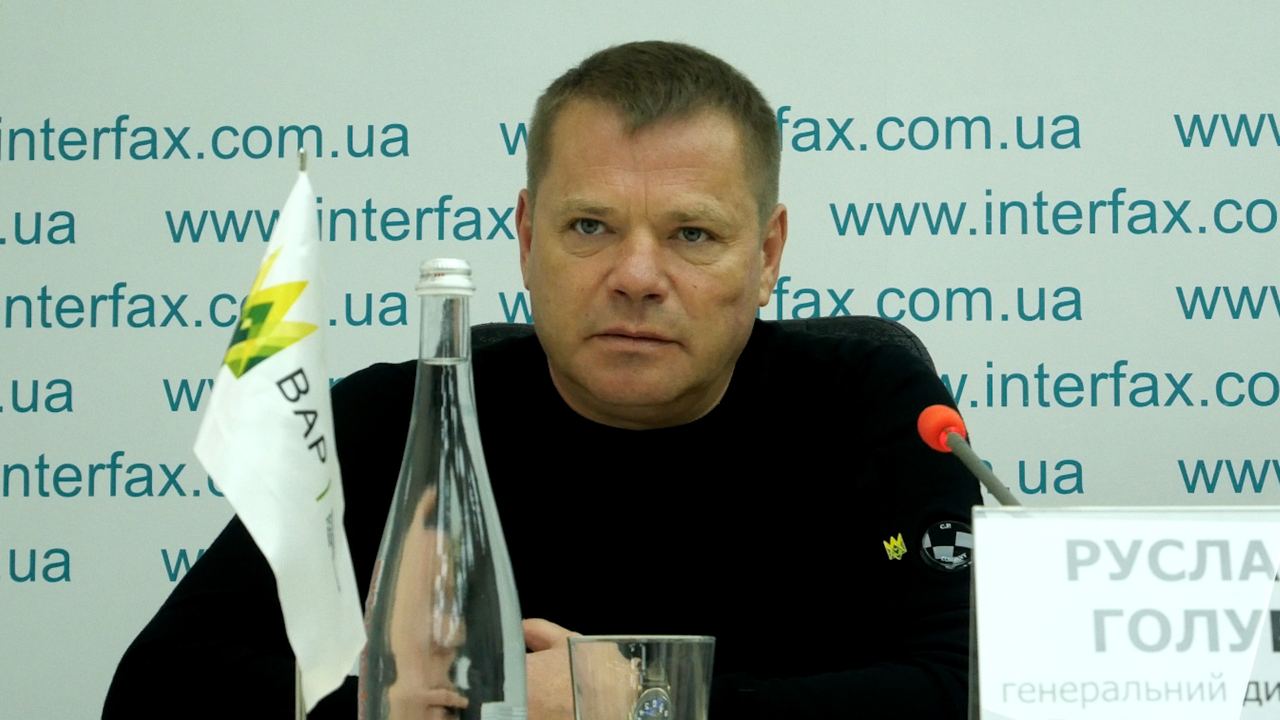The agricultural sector is in a critical situation regarding its financial performance in 2023. According to preliminary estimates, the losses of the crop production industry will amount to at least $3 billion, and most of the enterprises will go bankrupt. The main reasons are the blockade of the Black Sea and expensive logistics. The situation is exacerbated by rising prices for fuel, agrochemicals, and spare parts, which has led to higher self-cost on the background of lower purchase prices. Farmers are asking the government to keep preferential financing for the industry, to return the lending rate to 5% instead of the current 13% under the 5-7-9 program, and to increase lending limits to the optimal level of UAH 150 million.
On October 19, a press conference on "Ukrainian farmers on the verge of bankruptcy" was held, with the participation of leading agricultural associations.

Chairman of the Ukrainian Agri Council Andrii Dykun said:
"I could never have imagined that I would be talking about the unprofitability of Ukraine's agricultural sector. While the European agricultural sector has always been subsidized, the Ukrainian sector has found successful models and has become one of the most technologically advanced in the world. However, the war has destroyed the established economic ties. In addition to the rising cost of agricultural products and the lack of adequate purchase prices, logistics is the main problem of the agricultural sector's unprofitability. The only thing that has helped farmers survive is the government's 5-7-9 program. It has proven to be very successful, as it is available to small, medium and large agribusinesses. The UAC members, which are mostly medium-sized agribusinesses, almost all use preferential lending under this program. And if not for this program, most would not have survived."
The Ukrainian Agri Council has made preliminary calculations on the profitability of agricultural enterprises in 2023. Deputy Chairman of the UAC Dmytro Kokhan presented the results of the research: "We tried to evaluate the financial performance of the agricultural sector this year, focusing on the crop production sub-sector. For the calculations, we took the cultivation of the main crops - wheat, corn, sunflower, barley, soybeans and rapeseed - in the central regions of Ukraine. Due to low purchase prices and high production costs, all crops except soybeans are unprofitable this year. According to the prediction, crop production losses will exceed USD 3 billion. Under a scenario that assumes improved work of seaport, the figure may drop to USD 1.2 billion, but the industry will still suffer heavy losses even under the optimistic scenario."
Representatives of agrarian associations understand that the state cannot fully support the agricultural sector today, as the country is at war and the budget is aimed at the needs of the military, but they unanimously agree that the preferential lending terms of the 5-7-9 program can be a way out of the crisis.

"Today we see only one way out and we are addressing the government with this. The latest government resolution on the 5-7-9 program does not suit the agricultural sector. And we are surprised why the government has turned its back on the export-oriented agricultural sector. The funds for the 5-7-9 program are grants, allocated by the World Bank and other international donors. We believe that this program should run through the next 2024. We do not agree with the interest rate of 13% per annum for working capital financing; it should remain at the same level for all categories of enterprises - 5%. We do not agree with the limits, they should be increased from the current UAH 90 million to at least UAH 150 million so that producers can start developing added value in agriculture," the UAC Chairman emphasized.
According to Oleh Khomenko, CEO of UCAB, this year's situation with working capital in the industry is more critical for the sector, both for small and large entrepreneurs.
"Compared to last year, as of mid-summer 2022, everything did not look so catastrophic. Now we can observe an accumulative effect, when problems accumulate one after another, creating a situation similar to an avalanche - farmers are trying to function at the limit of their capabilities. That is why the extension of the program "Affordable Loans 5-7-9%" is urgent, as it helps the sector to continue its operations, pay rent and taxes, and support communities. Farmers do not ask for money on a non-refundable basis; most farmers return these funds, hoping to use the program again in the future if the situation becomes critical. Therefore, it is necessary not only to continue credit support, but also to expand the limits and reduce interest rates to 5%," says Oleh Khomenko.
Maria Didukh, director of the Ukrainian Agrarian Forum, said that the problem of unprofitability was currently relevant for all segments of the agricultural sector, and the 5-7-9 program was becoming a matter of survival for the industry.
"The agricultural sector is unprofitable for the first time in 20 years. There were times when the profitability of wheat fell to 1%, but sunflower production has never been unprofitable. And this is despite the fact that this year's favorable weather conditions supported agricultural production. Last fall, winter crops were reduced, but thanks to the weather, we had a normal gross harvest. Next year the sowing areas will decrease. Farmers are saving on fertilizers and machinery, which will have a negative effect on the accumulative system, and the gross harvest will decrease significantly. The average Ukrainian will have enough food. But the issue of exports will become even more acute, and there will be no foreign exchange earnings in Ukraine. With the beginning of the full-scale invasion, we asked for the 5-7-9 program as a "credits of trust", but now we are asking for "survival loans" with lower rates and increased limits," said Maria Didukh.
The farmers who attended the event confirmed the negative financial result of the industry based on their own farms and emphasized the high cost of resources this year. Ruslan Holub, CEO of TAK Group, said:

"We have assets in different regions of Ukraine. In Kherson region, we were unable to sow anything this year. We reduced the sowing areas in Odesa region by 30% compared to 2022. Yes, we achieved record sunflower yields in this region, but we did not manage to cover production. The average wheat harvest was 4.6 t/ha. However, the cost of wheat is 160 USD/t at conditional purchase prices of 105-115 USD/t. This is a catastrophic gap for the farm. And this is despite the fact that the company did not carry out any high-cost technological operations.
The main problem is the cost of resources. The key points that have contributed to the increase in production costs are: fuel, which has risen in price by more than one and a half times, nitrogen fertilizers have almost tripled in price, and prices for spare parts for agricultural machinery have doubled. If the government does not make concrete decisions to help the agricultural sector, it will see a wave of bankruptcies."
Andriy Dykun also emphasized the need for special conditions for the 5-7-9 program in the de-occupied territories.
"I would like to emphasize the importance of addressing the issue of farmers in the de-occupied territories. The "5-7-9" program should work for these territories. And the interest on loans for these enterprises should be zero. Because they have lost almost everything. Today, everyone has one task - to survive. The state must lend a shoulder. Without the support of the 5-7-9 program and without full exports by sea and river, the agricultural sector will go bankrupt."
Thursday, 19 October 2023